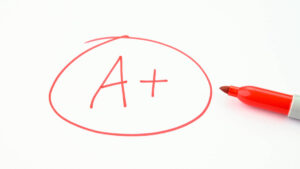Argosy in talks for new sales deals after wrapping up $15m placement

Pic: Schroptschop / E+ via Getty Images
Lithium play Argosy Minerals is moving on from its split with a Chinese battery supplier, holding talks with several other battery players while wrapping up a $15 million placement at a discounted issue price.
Perth-based Argosy (ASX:AGY) scrapped a $17 million deal to sell 19.9 per cent of itself to China’s Qingdao Qianyuan High-tech New Material Co on October 5.
The revised deal was on better terms and avoided time-consuming Chinese regulatory approvals.
Qianyun later tried to terminate two separate future sales deals with Argosy. Argosy told Qianyun it would not accept the termination request.
On Friday, Argosy told investors it was talking to other potential customers in the tightening lithium market.
“Argosy was and continues to be in active engagement with several industry leading participants in the lithium-ion battery sector to advance marketing of its targeted battery grade Lithium Carbonate Equivalent production,” it said.
“The company is in a much stronger position for its current engagement with customers to pursue additional off-take (future sales) arrangements and value-adding commercial agreements on enhanced terms for the benefit of Argosy.”
Argosy continued to work with strategic adviser Airguide International, through which it signed four deals with Chinese battery participants, while also conducting separate talks with non-Chinese potential customers.
Argosy also revealed that it offered investors the opportunity to either withdraw or confirm new subscriptions at a discounted price after Qianyun sought to terminate its sales deals.
The price was reduced to 18c from 22c per share to consider any perceived uncertainty from Qianyun’s decision.
The overwhelming majority of investors backed the placement and the $15 million placement closed oversubscribed, Argosy reported.
Funding will go towards stage-two development works at its flagship Rincon lithium project.
The company is on track for first battery grade lithium product from Rincon in the March 2018 quarter.
Argosy shares closed Friday at 24c — down from the 31c high they reached after the Qianyun deal, but still up sharply from the 8c shares were fetching before the deal was announced on August 17.
UNLOCK INSIGHTS
Discover the untold stories of emerging ASX stocks.
Daily news and expert analysis, it's free to subscribe.
By proceeding, you confirm you understand that we handle personal information in accordance with our Privacy Policy.








